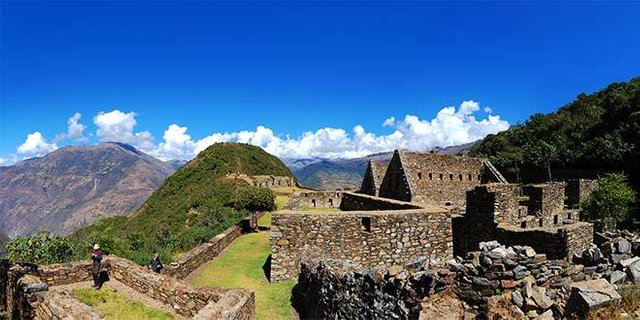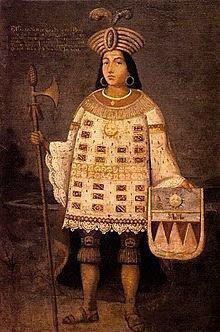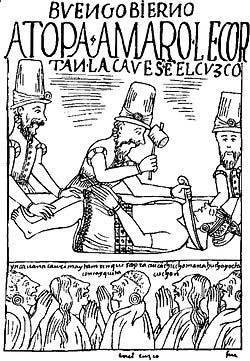The Incas of Vilcabamba

The Incas of Vilcabamba are those Incas who offered resistance to the Spanish siege in the area of Vilcabamba. The image above is the citadel of Choquequirao in Vilcabamba which was the last refuge of the Incas. For forty years were Manco Inca and his successors refugees in Vilcabamba enjoying religious prestige, but not political. The refugees failed to rebuild the government since the elite was divided. A sector represented by Paullu lived in Cuzco with excellent relations with the Spaniards and in apparent rivalry with Vilcabamba.
INCAS IN THE RESISTANCE OF VILCABAMBA
SAYRI TÚPAC
Manco Inca planted uncertainty in the Huamanga area for a while. When he died, Sayri Túpac took the tassel. In 1548 the peacemaker La Gasca and later, Viceroy Andres Hurtado de Mendoza, between 1550 and 1556, tried to leave the Incas refuge. But they only succeeded until 1558, when Sayri Túpac left Vilcabamba as a result of a profitable pact with the Spaniards for which they gave him a repartimiento in the rich valley of Yucay.
TITU CUSI YUPANQUI
The Spaniards had to resume their dealings with Titu Cusi Yupanqui. Governor Lope Garcia de Castro, who was from 1564 to 1569, tried to get Titu Cusi to surrender and end his rebellion in Vilcabamba. The negotiation that got the official with the Inca Titu Cusi is known as the Capitulation of Acobamba, by which the permission of entry of missionaries was obtained with the purpose of evangelizing the natives, the baptism of the Inca and his family and the promise, never fulfilled, to leave Vilcabamba.
TUPAC AMARU
Upon arriving in Peru, Viceroy Toledo decided to take the issue of Vilcabamba as one of the priorities in his administration and sent troops under the command of Captain Martin Hurtado de Arbieto.

Titu Cusi contracted an illness that killed him in 24 hours after performing rituals in honor of his ancestors, so, who had to resist the forces of the Viceroy was Tupac Amaru. There were strong confrontations, and the Inca was captured along with other members of the elite.
The arrival of the prisoners caused a stir in Cuzco. Túpac Amaru was held in Sacsayhuamán and then in Colcampata. Toledo ordered that Judge Gabriel Loarte rule on the sentence against the Inca and five members of the elite, on charges of tyranny and treason against the King of Spain.
THE MYTH OF INKARRÍ
The myth of Inkarrí, in the collected versions, in addition to having myth connotations of origin, presents a messianic content, understood as a reaction to the Spanish invasion, at the same time as it is a consequence of it. The Andean inhabitants say that from the buried head of an Inca, somewhere in the Andes, his body would grow again, which would lead to the demand of the indigenous population and the birth of a new era. In this way, the return of the Inca would imply an ordering of the world. The first versions of the Inkarrí myth were found in Ayacucho by José María Arguedas and Josafat Roel in the 1950.

upvote for me please? https://steemit.com/news/@bible.com/2sysip
upvote for me please? https://steemit.com/news/@bible.com/2sysip
Congratulations @aldahyr77! You have completed the following achievement on Steemit and have been rewarded with new badge(s) :
Click on the badge to view your Board of Honor.
If you no longer want to receive notifications, reply to this comment with the word
STOPTo support your work, I also upvoted your post!
Do not miss the last post from @steemitboard:
SteemitBoard World Cup Contest - Round of 16 - Day 4
Participate in the SteemitBoard World Cup Contest!
Collect World Cup badges and win free SBD
Support the Gold Sponsors of the contest: @good-karma and @lukestokes
great post you made @aldahyr77 ! thanks for sharing those good informations about history in that part of the world and at that time ! I really love the ancients South-Americans people ! Also really like your article THE CITIZEN OF CHAN CHAN :-) read you soon !